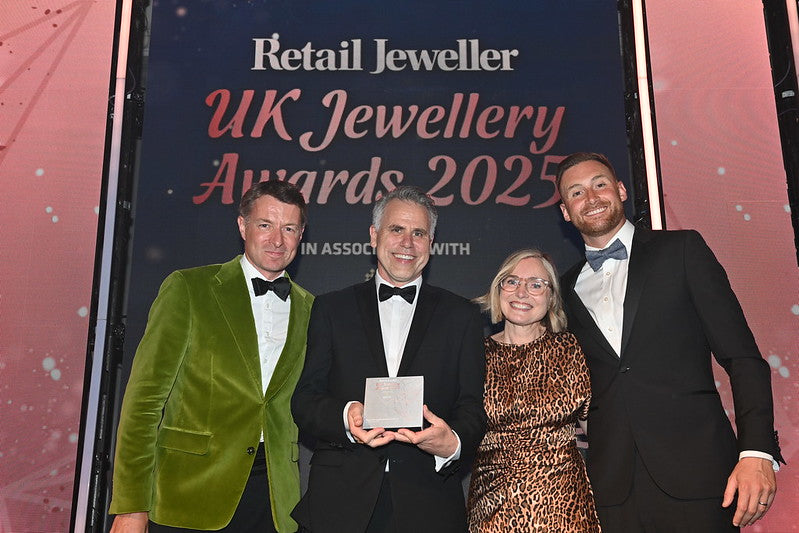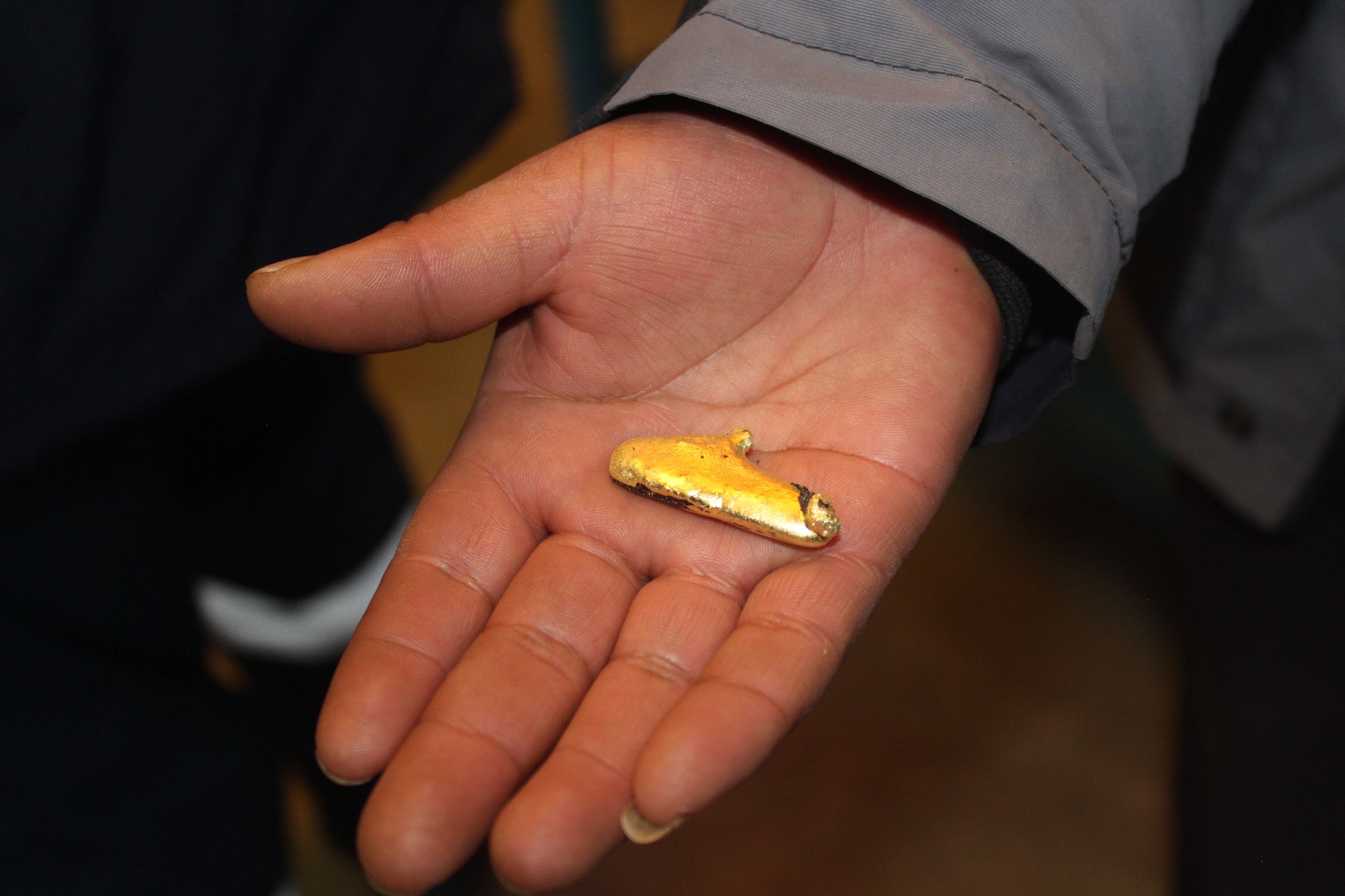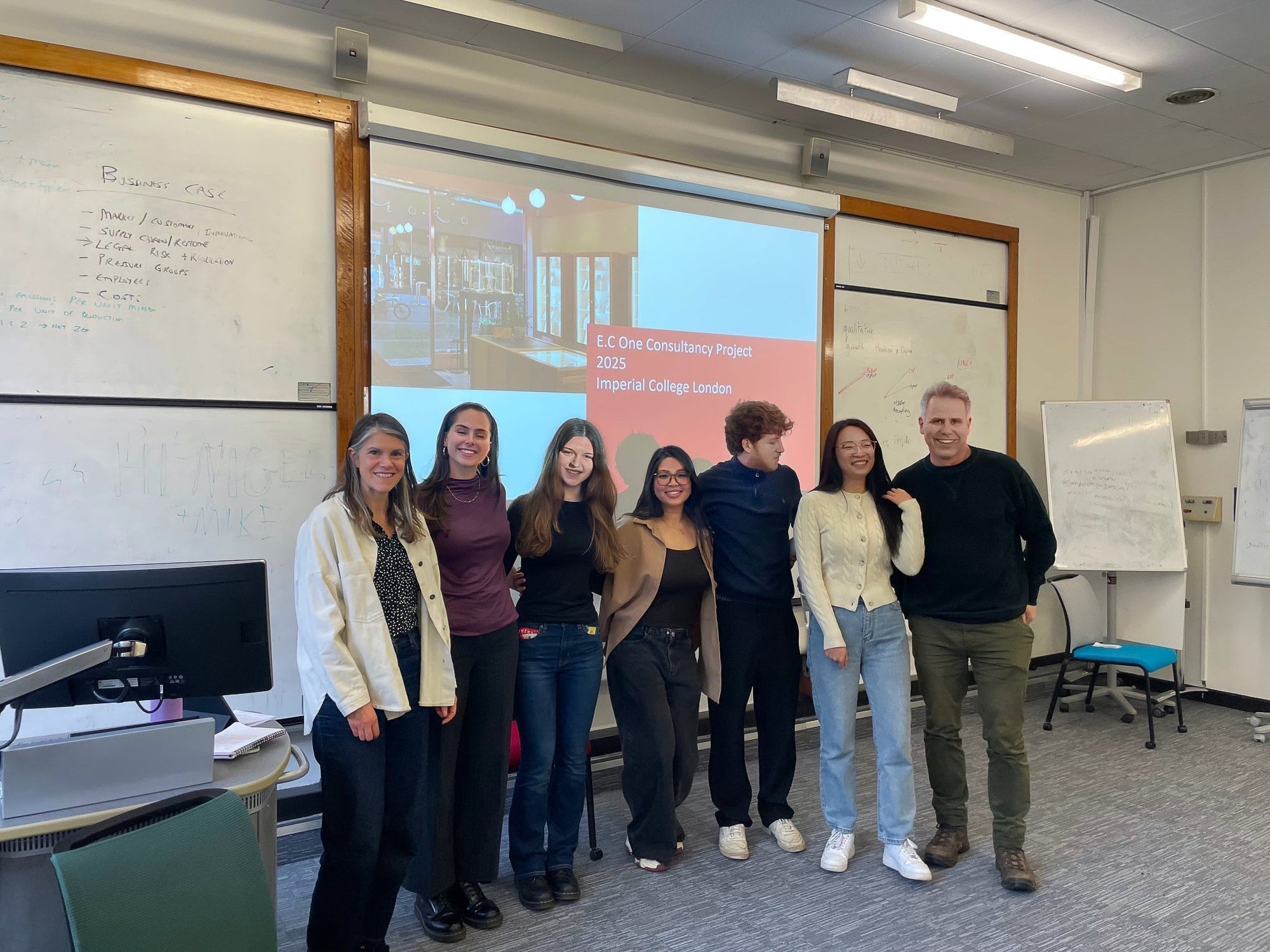Fairtrade or Recycled?
On our journey towards B-Corp certification, we asked the E.C.One team the following question; if you could only choose one ideal to work towards would it be for the people or the planet? A tough choice and similar in lots of ways to choose between Fairtrade or recycled gold. As a manufacturing jeweller we are fortunate to make our own jewellery and bespoke items on the premises. This gives us an opportunity to make choices in what we materials we use – not least where our gold comes from.
Firstly, let’s talk about Fairtrade Gold.
Launched in 2011 Fairtrade Certified Gold is the world's first independent ethical certification system for gold. Workers in Fairtrade certified gold mines receive a guaranteed Fairtrade minimum price for their gold as well as a premium to spend on improving their businesses or on community projects, such as education, clean water and healthcare. This can help them to improve their mining and business practices as well as open the market to generate more sales on better terms. The Fairtrade Gold Standards include strict requirements on working conditions, health and safety, handling chemicals, women’s rights, child labour and protection of the environment. This is surely a huge plus and negates a great deal of the negative aspects of the mining industry.
Nevertheless, metal mining, and gold mining in particular, is one of the most
environmentally destructive types of mining with approximately 20 tons of ore required to produce enough gold for a single ring. Best estimate is that global mining accounts for 2500-3000 tonnes of gold per year so you can imagine the environmental damage that this could cause. Despite our best efforts surely any form of mining will have an impact on the environment. Ethically sourced jewellery companies such as Brilliant Earth believe that “We can choose recycled metals to decrease the global demand for newly mined gold. This will diminish the environmentally and socially destructive effects of dirty gold and other metal mining practices”.
However, the question that remains; if gold is considered a solid investment by world economies would mining continue at the same rate if we didn’t use it in jewellery?
What about Recycled Gold.
According to The World Gold Council, “best estimates currently available suggest that around 190,040 tonnes of gold has been mined throughout history, of which around two- thirds has been mined since 1950. And since gold is virtually indestructible, this means that almost all of this metal is still around in one form or another.”
No one in their right mind is going to throw away gold and jewellers have always recycled it. Around 90% of recycled gold comes from jewellery, with technology providing the remaining 10%. As recycling becomes part of our everyday lives surely recycled gold is the best option to mitigate environmental damage? Some activists argue that although recycling is great but recycling gold as an eco-friendly solution is deceptive. Gold that has been mined by companies who don’t adhere to good practices either socially or environmentally can enter the recycling chain and become ethical as soon as they are refined. Greg Valerio MBE who has pioneered the use of Fairtrade gold states;
“Very simply we can deduce that using recycled metals in jewellery does not mitigate the huge ecological or social problems that mining creates every year. To claim this is simply untrue and green washing. Jewellers who make these claims clearly lack a basic grasp of the complexities of the relationship between the mine and the market.”
Although recycled gold must be an obvious choice for many of us trying to make a
difference if the gold you buy is not verified and audited as 100% post-consumer
waste/scrap, then there is no guarantee that what you are buying is indeed recycled.
So, where does that leave an ethically minded responsible jeweller wanting to make a difference? A bit like the team question mentioned earlier, people or planet, there doesn’t seem to be a definitive answer. Personally, I get put off by companies and individuals who push their agenda without leaving room for other opinions. At E.C.One we only work with suppliers who can guarantee the material is recycled, preferably 100% post-consumer waste or scrap. Wherever possible we will use our customers own metal and either trade it in for credit, melt it down into something else for them or scrap it and put it back into the supply chain.
Having made the first ever piece of Fairtrade jewellery (a wedding ring I wear every day) we are also great supporters of the Fairtrade ethos. The sad reality is though 8 years down the line consumers are still unsure or unaware of what this means coupled with issues around what variations of metal are available as well as which chains or findings. It hasn’t had the take up some of us early pioneers expected, especially compared to the success of Fairtrade bananas and coffee. However, we continue to offer it as an option in the hope we can educate and leave our clients to make their best choice.
Both are good options and unlike some I don’t believe it has to be one or the other. As long as we do our research and make good informed decisions we can all be part of the solution rather than the problem.
Watch our video on the story of EC One.



